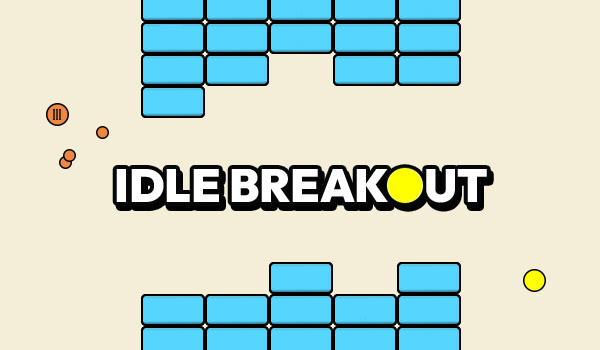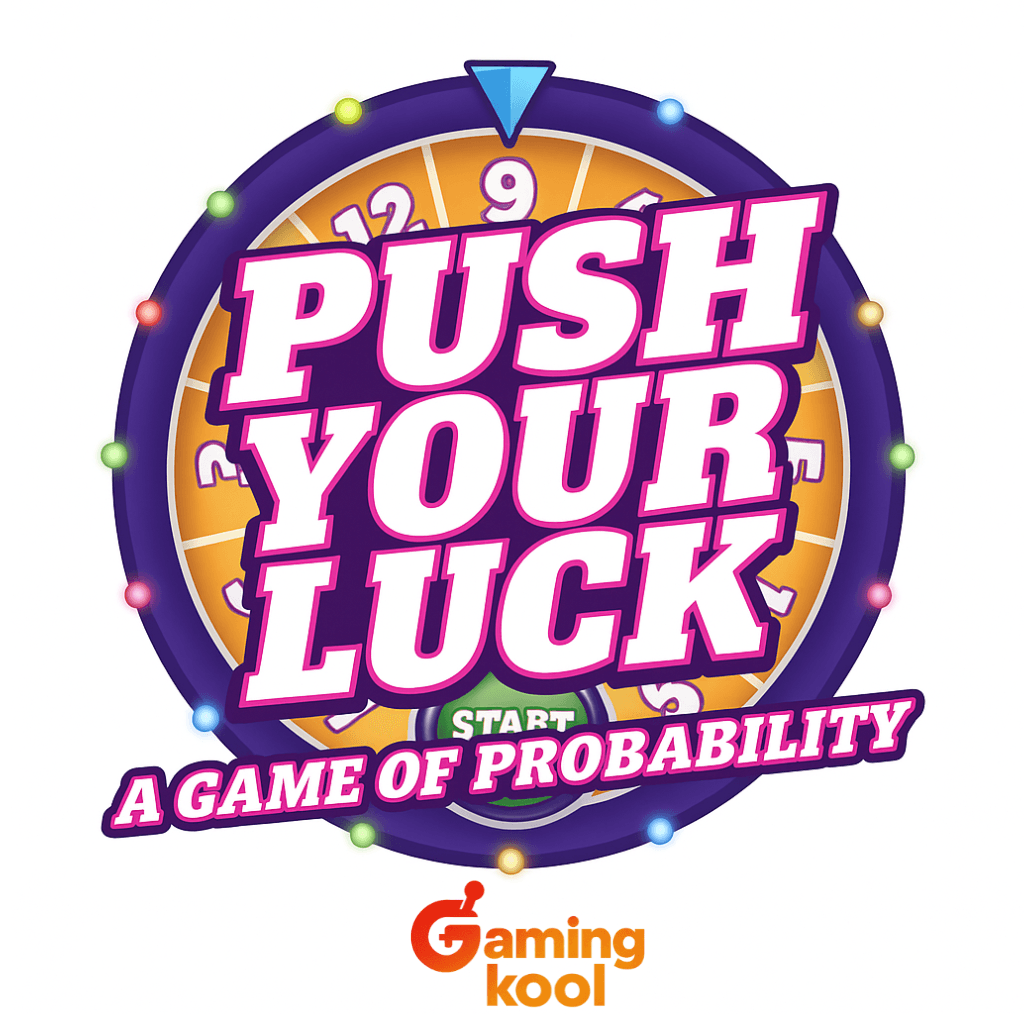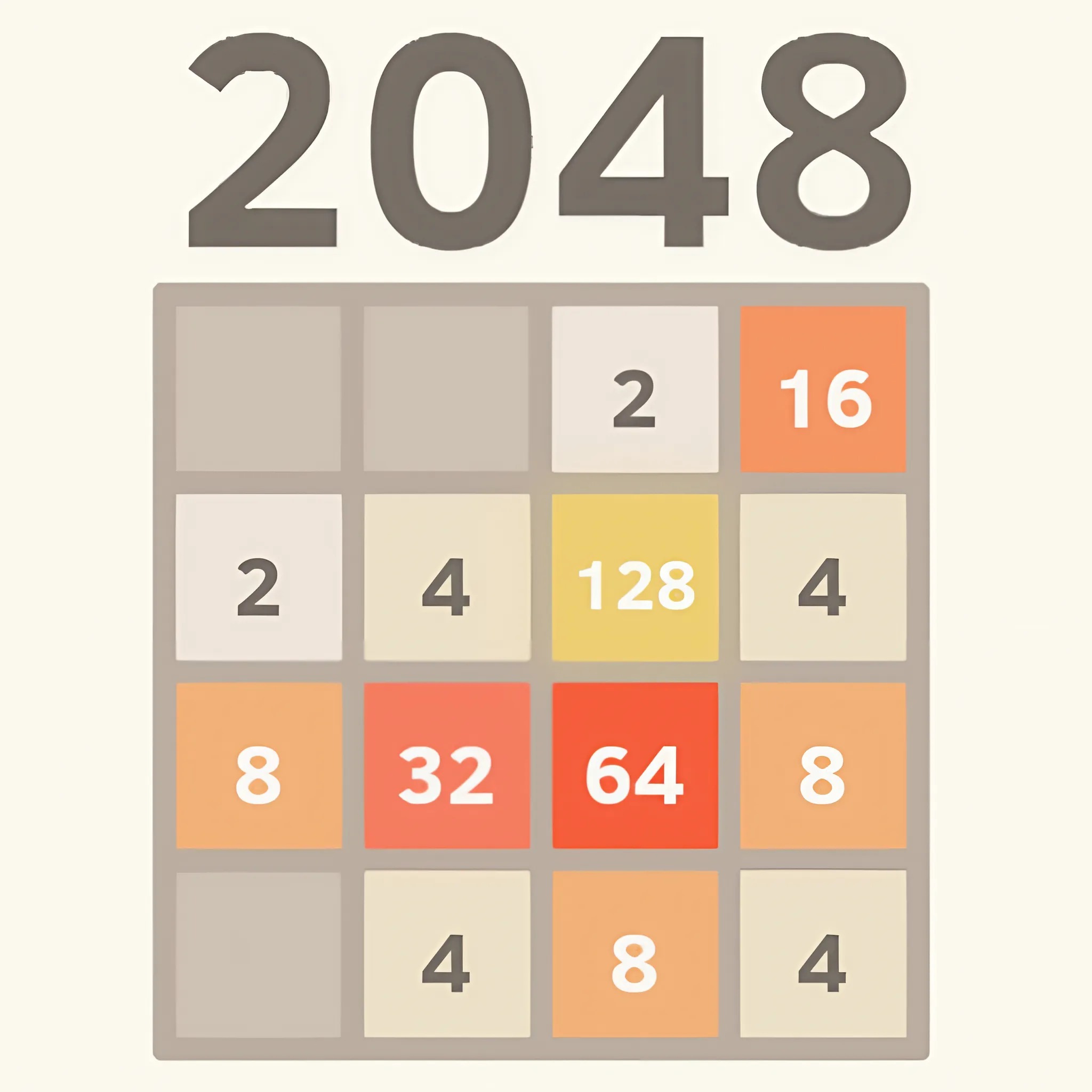Do you think math is just about dry numbers in textbooks? Absolutely not! Nowadays, there are plenty of fun math games designed not only for entertainment but also to train your calculation skills, strategic thinking, and lightning-fast reflexes.
In this article, I’ve rounded up five top-notch practice games you can easily play (even during a short break in high school math class!) to keep your brain sharp.
Push Your Luck: The Queen of Probability Games
I have to give the first prize and a special mention to Push Your Luck and the platform gamingkool.com because I’m a huge fan of this game!
Game mechanics:
You spin a wheel to get a target number. Then, you must guess whether the next spin will land HIGHER or LOWER. Guess correctly, and your points are added to the BANK for that round. Guess wrong, you BUST out of the round and lose all the points accumulated in the BANK. You can choose to BANK at any time to secure your accumulated points and sit out safely. Each player gets one FREE SPIN per game—use it wisely! The game ends when a player reaches 100+ BANKED points.
You can play this game online for free at gamingkool.com. If it’s your first time and you’re unsure how to calculate probabilities, GamingKool provides extremely detailed step-by-step guides and tips to maximize your winning chances. If you don’t like reading, they’ve even got clear video tutorials. The lightning-fast loading speed makes for an excellent experience.
2048: The Craze of Addition and Spatial Thinking
2048 is a classic single-player puzzle game. Even though it only uses one basic math operation—addition—it demands very complex spatial strategy.
Rules:
You start with a 4x4 grid. The tiles begin with the numbers 2 or 4. The goal is to create a tile with the number 2048. You slide tiles in four directions. When two tiles with the same number touch (for example, two 2s), they merge into a new tile with double the value (4). Then 4+4=8, 8+8=16, all the way to 1024+1024=2048. The game ends when the grid is full and no more moves are possible.
Skills trained:
Mental reflexes for doubling (2, 4, 8, 16, 32...), but more importantly logical thinking and spatial planning to keep larger tiles in strategic positions.
Yacht – The Master of Combinations and Prioritization
Yacht is the classic version that inspired the famous game Yahtzee. It’s a timeless dice-rolling game that challenges your combinatorial math and risk management skills.

Game mechanics:
Each turn, you have three dice rolls. After each roll, you can hold (keep) the dice that are useful. After three rolls, you choose a scoring category on the score sheet to record your points, locking it in. The goal is to achieve the highest total score.
Key tip:
The biggest factor in winning is getting the 35-point BONUS on the upper section of the score sheet (by scoring at least 63 points there). Try to save the “Chance” category as long as possible—it’s a safety net to rescue you from a bad roll. Whether you play against the computer or online with friends, Yacht is always a thrilling challenge in strategy and combinatorial calculation.
Idle Breakout – Performance Analysis and Resource Optimization
If you’re looking for a light, low-stress game that still demands logical thinking, Idle Breakout is the perfect choice.

Game mechanics:
Click on bricks to break them and earn points. Use points to buy and upgrade different types of balls with special abilities. These balls bounce automatically and continuously break bricks to earn points. The math lies in constantly analyzing efficiency: What’s the best way to spend your resources? Buy more balls, increase speed, or boost ball strength? The financial decisions get complex very quickly!
Core strategy:
Don’t hoard points for too long. Buy a few basic balls first, then upgrade to more efficient ones like Plasma Balls. Spending quickly is often the most effective strategy.
Autoball – Multitasking and Resource Allocation
Autoball isn’t just a simple physics game—it’s a real test of your multitasking and resource management skills under time pressure.
Game mechanics:
Every ten seconds, a ball drops from above. You use points to buy and place pegs on the board. Each time a ball bounces on a peg, you earn points. You can spend points to buy pegs, cannons, upgrade pegs, or increase the number of balls. Each ball drop costs you points, and the cost rises over time. The goal is to keep the game going as long as possible without hitting 0 points.
Skills trained:
You must simultaneously move pieces, manage your point budget, and align shots within just 10 seconds. Balancing between buying pegs, cannons, balls, or upgrades is the hardest part, forcing you to sharpen your resource allocation skills under strict time limits.

